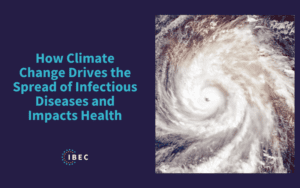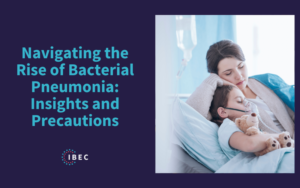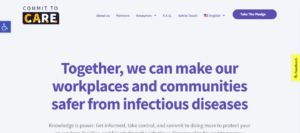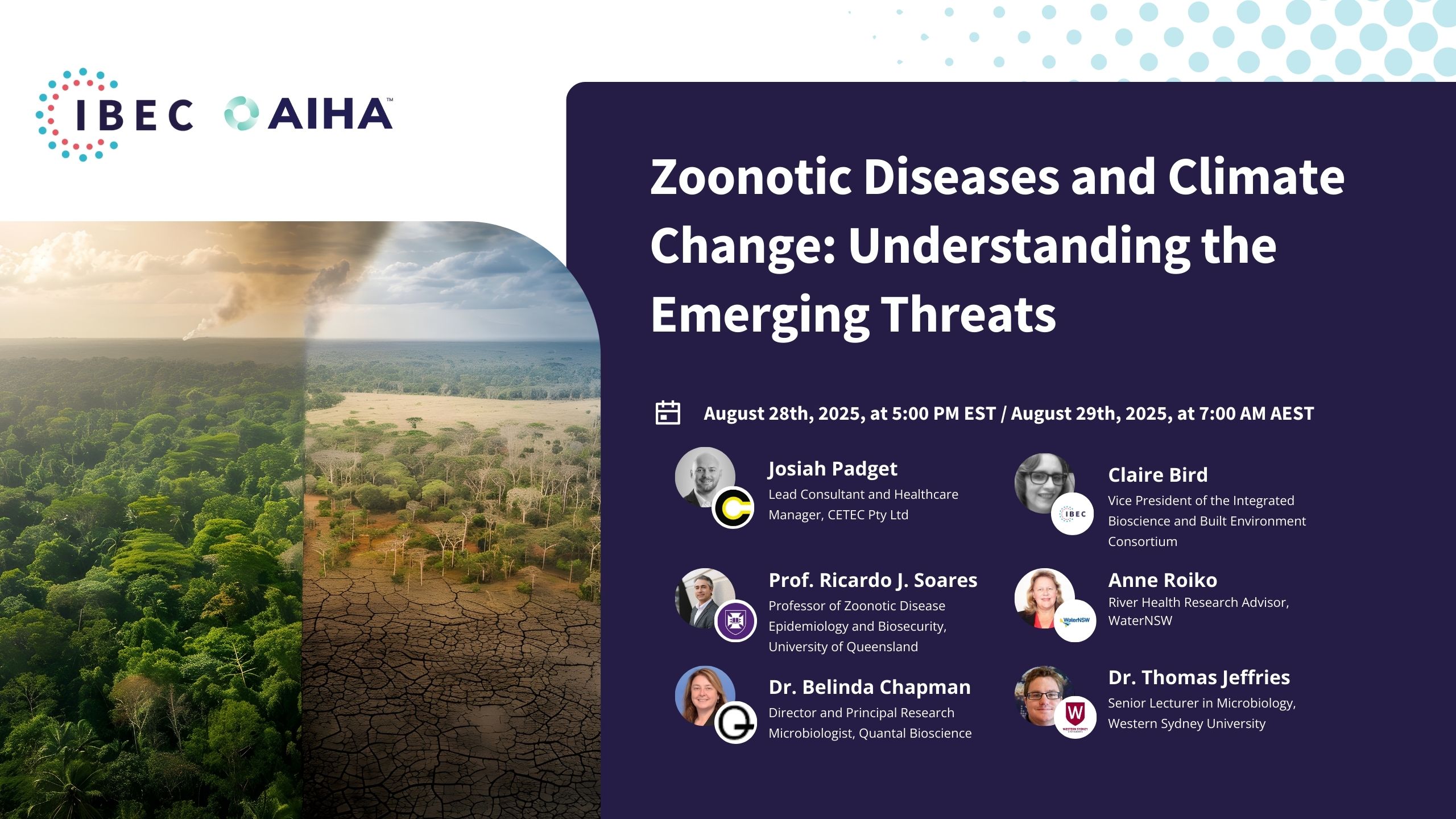IBEC Statement on the Quarantine of Cargo Ship in Argentina Due to Suspected Mpox Case
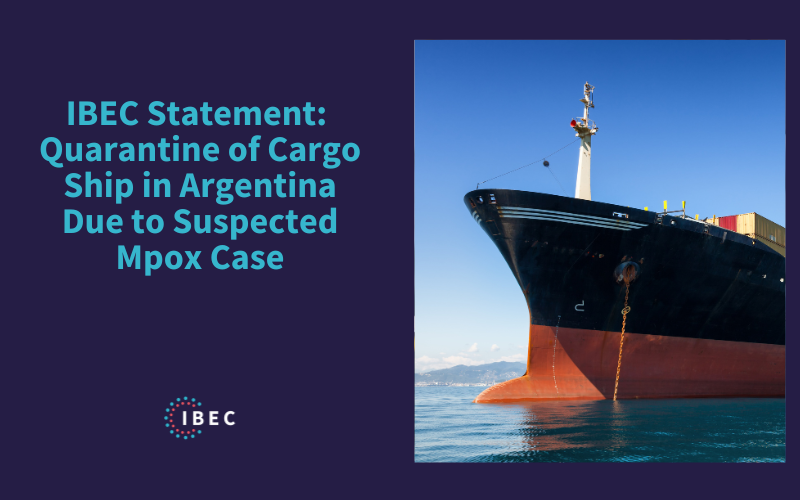
The recent news regarding the quarantine of a cargo ship near Argentina’s Rosario Port due to a suspected case of mpox underscores the continued global vigilance required in managing infectious diseases that pose a threat to public health.
The situation highlights the importance of robust protocols and preparedness measures, both at national and international levels, to contain and mitigate potential outbreaks.
At the Integrated Bioscience and Built Environment Consortium (IBEC), we recognize the critical intersection between bioscience and the built environment in managing such health crises. The rapid response by Argentine authorities, including the quarantine of the affected vessel and isolation of the crew member exhibiting symptoms, is a necessary precautionary measure in light of the potential spread of the clade 1b variant of the mpox virus, which has shown an increased rate of transmission.
This incident in Argentina is part of a broader global concern. The World Health Organization (WHO) has recently declared mpox a global public health emergency for the second time in two years, citing the increasing spread of the virus in Africa and the potential for it to cross into other continents.
Mpox Detection in Sweden
The situation in Sweden, where the first case of the more contagious clade 1b variant was confirmed outside Africa, signals the possibility of a rapid international spread. As Lawrence Gostin, a public health expert, noted, a case in Sweden likely indicates the presence of undetected cases elsewhere in Europe, which raises the urgency for global preparedness and response.
Formulating Action on a Global Scale
The WHO’s emergency declaration aims to galvanize global action, urging donor agencies and countries to accelerate access to testing, vaccines, and therapeutic drugs, especially in affected areas.
However, as highlighted by the Africa Centers for Disease Control and Prevention (CDC) Director, Gen. Dr. Jean Kaseya, there is a pressing need for more resources and an effective global response.
The escalating number of cases in Africa, particularly in the Democratic Republic of Congo, where over 96% of cases and deaths have occurred this year, demonstrates the inadequacy of current control strategies.
The situation calls for increased collaboration and resource mobilization on an international scale. IBEC emphasizes the importance of continuous collaboration among public health agencies, the maritime industry, and bioscience research institutions to enhance surveillance, testing, and response capabilities.
With the potential for the mpox virus to spread through close contact, it is crucial to ensure that effective monitoring and containment strategies are in place not only to protect those directly involved but also to prevent the spread of the virus to broader populations.
China Enacts Increased Screening Measures
China’s recent announcement of enhanced screening measures for people and goods entering the country from areas with mpox outbreaks reflects the growing global concern. Such measures are essential to preventing further spread, particularly of the more contagious clade 1b variant.
Slowing the Spread: Vaccines and Diagnostic Tools
Furthermore, IBEC calls for increased investment in research and development of vaccines, diagnostic tools, and treatments for emerging infectious diseases. The actions of pharmaceutical companies, such as Denmark’s Bavarian Nordic and Roche, to potentially ramp up vaccine production and laboratory testing capabilities, are steps in the right direction. However, these efforts must be supported by global cooperation and funding to ensure resources are available where they are most needed.
In conclusion, the situation in Argentina, alongside recent developments in Africa and Sweden, is a stark reminder of the interconnectedness of global health and the built environment.
As we continue to navigate the challenges posed by mpox and other emerging infectious diseases, IBEC remains committed to advancing research, fostering collaboration, and promoting policies that protect public health and safety in the built environment.
If You Believe You’re at Risk
Speak with your healthcare provider about the mpox vaccine. As vaccines do not ensure you will not catch mpox, remember to protect yourself. Isolate if you experience mpox symptoms or have been in close proximity to someone while they were infected. At this time, it is recommended to avoid sharing clothing, towels, etc., to lower your risk of contracting mpox.
We recommend visiting the WHO’s website for the latest prevention measures and advice.
IBEC’s Mpox Work
In May 2024, IBEC secured CDC Foundation grant funding for developing and distributing knowledge products intended to help prevent the resurgence of mpox in at-risk communities in the U.S.
IBEC—Enhancing Public Health through Innovation in Bioscience and the Built Environment
Related Blogposts
How Climate Change is Propelling the Spread of Infectious Disease
By Stephane Bilodeau, Eng., Ph.D., FEC, Chief Science Officer at IBECClimate change is not only an ecological crisis; it fundamentally alters public health dynamics worldwide…
Interdisciplinary Collaboration in Environmental Science: Pioneering Health Solutions with IBEC’s New CSO
The Integrated Bioscience and Built Environment Consortium (IBEC) proudly introduces its new Chief Scientific Officer (CSO), Stephane Bilodeau. Bringing over 25 years of diverse experience…
Navigating the Rise of Bacterial Pneumonia: Insights and Precautions
Navigating the Rise of Bacterial Pneumonia: Insights and Precautions As winter’s chill sets in, health professionals and organizations brace for the annual uptick in respiratory…
New COVID-19 Variant JN.1 Raises in the United States
JN.1 is a highly contagious, fast-spreading subvariant of omicron that has become the dominant strain in the country. According to data from the Centers for…
Pioneering Steps to Control Infectious Aerosols: Dr. Claire Bird Offers Expert Insight on ASHRAE’s New Draft Standard
As we navigate through the challenges posed by the COVID-19 pandemic and other airborne diseases, there is a dire need to implement measures that will…
IBEC Takes the Lead in Developing a Framework for Reducing Indoor Pathogen Transmission
Dear IBEC Partners and Supporters, As we continue to navigate the ongoing threat of airborne pathogens transmission in our shared indoor communities, it’s more important…
New Commit To C.A.R.E. Resources Deliver Innovative Indoor Air Quality Solutions for Safer Workplaces
The Commit to C.A.R.E initiative The Integrated Bioscience and Built Environment Consortium (IBEC) and The American Industrial Hygiene Association (AIHA), two leading organizations committed to…
Staying Ahead of Severe GAS Infections and Other Secondary Bacterial Infections
Severe Group A Streptococcal (GAS) infections, including invasive disease (iGAS), can lead to life-threatening illness and death. CDC is looking into an increase in…
Industry Leader L’Oréal Pledges to Support Commit to C.A.R.E.
Industry Leader L’Oréal Pledges to Support Commit to C.A.R.E. With health experts warning of the triple threat of the continued spread of new COVID-19…
C.L.E.A.N. Lessons Learned: How to protect the healthcare system from current and future pandemics
The COVID-19 pandemic caught the world off guard. Health organizations all over the globe rushed into a quick response to protect people from the threat…

